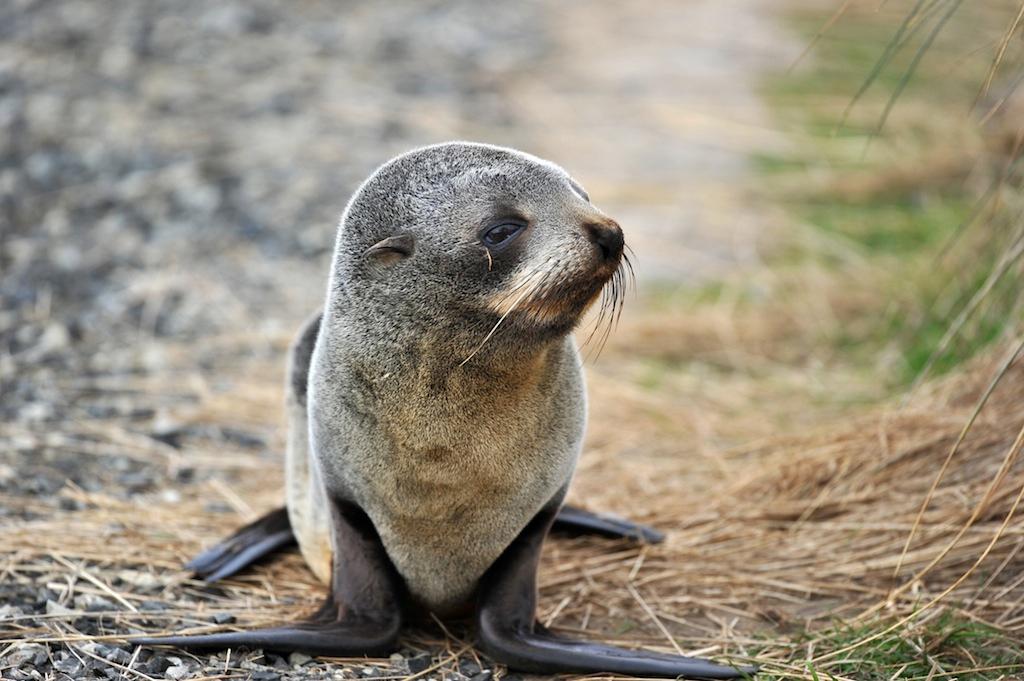Dying ringed seals trigger Fukushima radiation worries
A baby fur seal walks along a beach on the Otago peninsula near Dunedin on September 7, 2011.
Scientists in Alaska are concerned that local ringed seals are being sickened and killed by radiation from the stricken Fukushima nuclear plant in Japan.
Since mid-July, more than 60 seals have been found dead, and 75 seals have fallen sick, the Environment News Service reported.
The disease causes "bleeding lesions on the hind flippers, irritated skin around the nose and eyes, and patchy hair loss on the animal's fur coats," according to Reuters.
At first, biologists believed the seals were suffering from a virus, but they now are testing the seals to see if radiation is a factor.
"We recently received samples of seal tissue from diseased animals captured near St. Lawrence Island with a request to examine the material for radioactivity," John Kelley, Professor Emeritus at the Institute of Marine Science at the University of Alaska Fairbanks, told Reuters.
"There is concern expressed by some members of the local communities that there may be some relationship to the Fukushima nuclear reactor's damage," he said.
In March, a 9.0 magnitude earthquake off Japan's northeast coast triggered a tsunami, which caused the meltdown of three reactors at Japan's Fukushima power plant.
More from GlobalPost: Fukushima: Worse than previously thought?
Results of the tests will not become available for a few weeks.
The National Oceanic and Atmospheric Administration (NOAA) has declared the seals' deaths an "unusual mortality event" (UME). According to Mother Jones Magazine, a declaration of a UME triggers a scientific investigation. At least two of the three recently declared marine UMEs have implications for human health.
According to the NOAA declaration:
[N]o similar illnesses in humans have been reported. Still, it is not known whether the disease can be transmitted to humans, pets, or other animals. Native subsistence hunters should use traditional and customary safe handling practices, and the Alaska Division of Public Health recommends fully cooking all meat and thoroughly washing hands and equipment with a water/bleach solution.
According to Dr. Raphaela Stimmelmayr, a wildlife veterinarian and research biologist with the North Slope Borough Department of Wildlife Management in Alaska, though polar bears are one of the main predators of ringed seals, scientists have not observed any similar health issues in polar bears, ENS reported.
According to the Daily Mail, water tests in US Pacific waters have not picked up evidence of elevated radiation since March.
More from GlobalPost: Alaska slammed by storm
The story you just read is accessible and free to all because thousands of listeners and readers contribute to our nonprofit newsroom. We go deep to bring you the human-centered international reporting that you know you can trust. To do this work and to do it well, we rely on the support of our listeners. If you appreciated our coverage this year, if there was a story that made you pause or a song that moved you, would you consider making a gift to sustain our work through 2024 and beyond?
